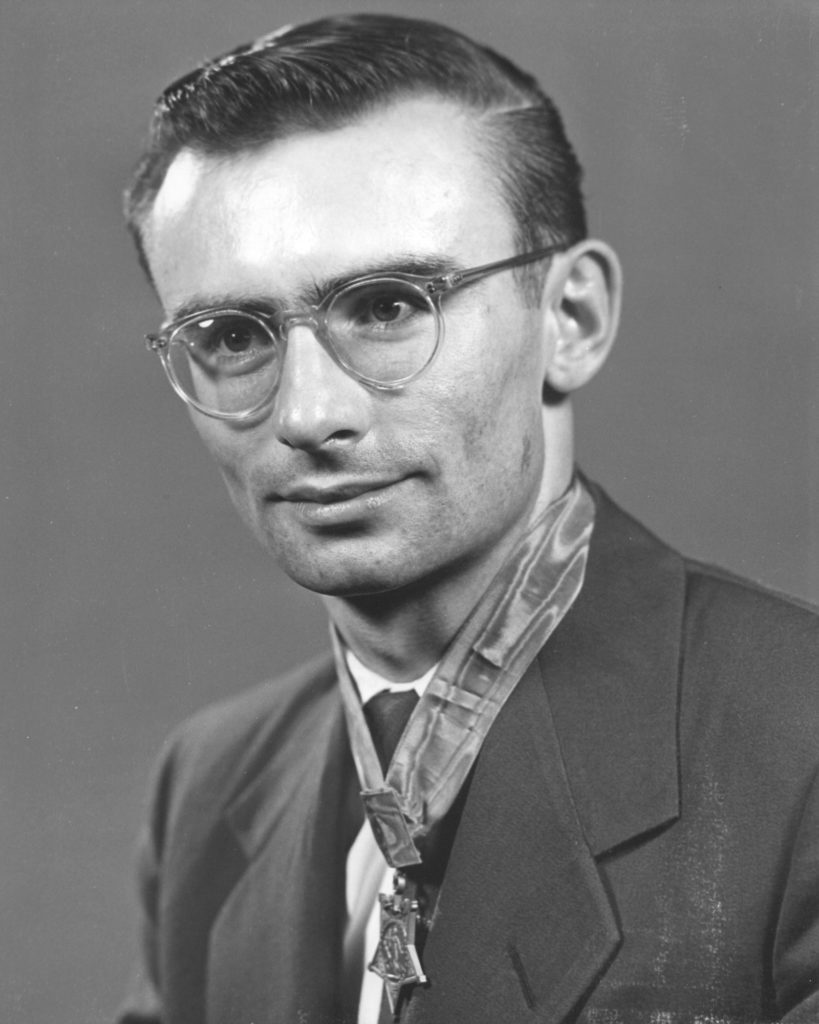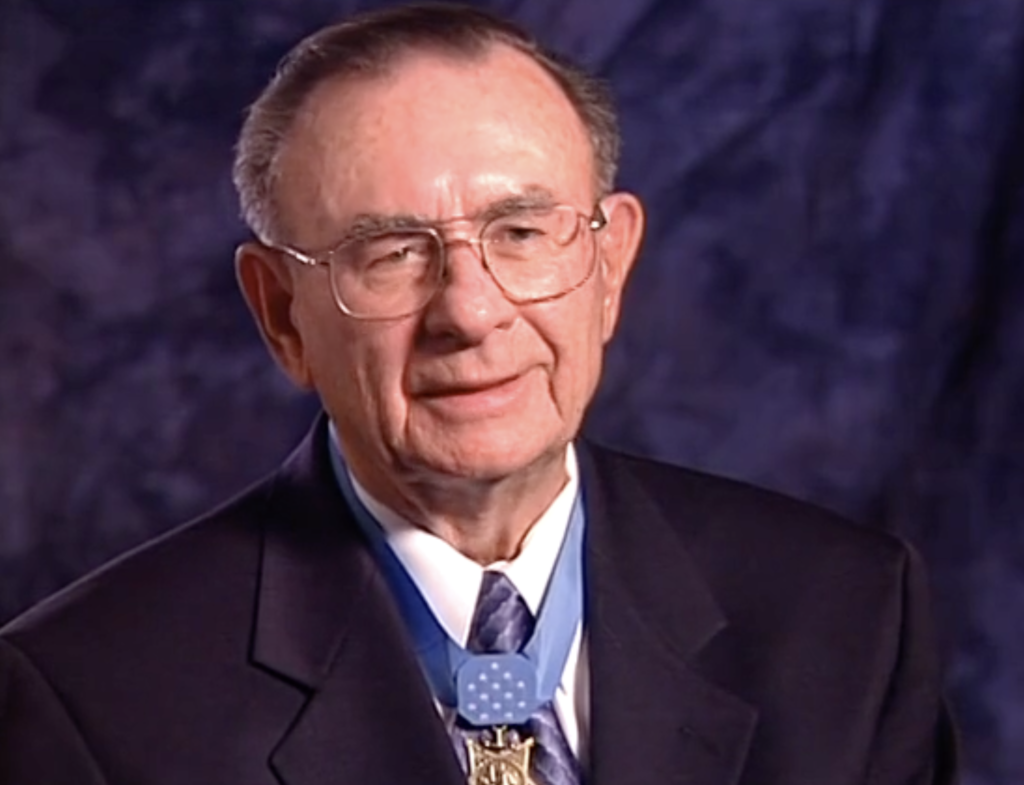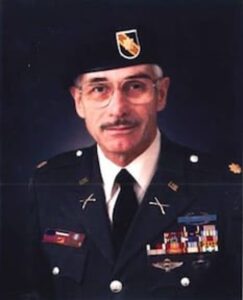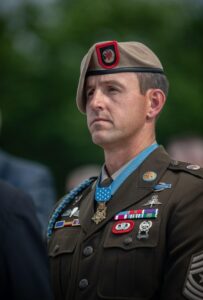The National Medal of Honor Museum and Institute extends its deepest regrets to the family and friends of Robert E. Simanek, Korean War veteran and Medal of Honor recipient, who passed away Monday, August 1, 2022.
Robert Simanek was born April 26, 1930, in Detroit, Michigan. He described his parents as “tough enough to raise 4 boys,” of which he was the third. Their parents instilled in them a sense of community and responsibility. Everyone did their part in the Simanek household. Robert was inspired to join the military by his two uncles who served in the United States Marine Corps during World War II. His older brother also served as a Marine in the South Pacific. While Simanek had always planned to follow in their footsteps, he wanted to finish college first. He did his best to save up enough money for school but was ultimately drafted to serve in the Korean War in 1951. When asked to select his branch of service, Robert chose the Marine Corps. He was 21 years old.
Assigned to Company F, 2nd Battalion, 5th Marines, 1st Marine Division, Simanek initially spent most of his time as a rifleman carrying a Browning automatic rifle, a weapon he felt was unsuited for fighting in Korea. After he made this point to his commanding officer, emphasizing the weight of the weapon, Robert was assigned to carry the unit’s radio. This was a much heavier piece of equipment, and he was armed with only a pistol. The humor of such an order was not lost on him. When asked how he reacted the first time he encountered enemy fire, Simanek said, “Well, it really didn’t seem to bother me as much as I thought it might…”

He had served for a little over a year when the actions that earned him the Medal of Honor took place. On August 17, 1952, after a full night of patrols, Simanek, now a private first-class, was assigned to accompany another unit as radioman. When the unit encountered an ambush set by Chinese troops, he and four others took cover in the nearest trench. They immediately radioed for reinforcements, and then joined the fight. Hoping to distract the enemy, Simanek popped his head out of the trench and fired his weapon, then moved so that the enemy would fire on the wrong position. The ploy worked at first. The enemy eventually caught on, however, and threw two grenades into the trench. Simanek was able to kick the first away, but there was no time to deal safely with the second. Without hesitation, he threw himself on the grenade, using his own body to dampen the explosion and shield his fellow Marines from harm.
Miraculously, Simanek survived and sustained only injuries to his legs. Determined to keep fighting, he used his radio to direct a nearby tank crew to fire upon the enemy, acting as their spotter and relaying back to them what adjustments to make. Later, two Marines attempted to carry Simanek to safety, but both were wounded when they were fired upon by the same tank that had assisted them earlier. When it became apparent that the wounded Marines would not be able to carry him any further, he insisted they leave him behind. Seeing that his own weapon had jammed, one of the Marines gave Simanek his sidearm and wished him the best. He crawled on his hands and knees until a rescue squad was able to find and assist him. Robert recalled how much he enjoyed riding on the side of the medical helicopter, saying, “I just couldn’t get over how beautiful it was. But then, I’d had a shot [of morphine] in the arm, and that sort of gave me a little extra sense of beauty.”
Simanek was taken to the USS Haven in Japan to be treated for the damage to his leg, which included severe nerve damage. He then embarked on what he called a “tour” of hospitals over a 5-month recovery period. When he was medically discharged from the military, he had no feeling in his leg and “a foot that couldn’t flap properly.” He credits golf with his recovery, saying that the long walks across the greens helped him heal. Exactly one year after the action that damaged his leg, he was contacted and told he would be receiving the Medal of Honor. President Dwight D. Eisenhower presented the medal to him in a ceremony held on the White House balcony.
Unable to continue his military career, Simanek fell back on his previous plans to attend college. He spent three years at Michigan State University before graduating from Wayne State University with a degree in business administration. He met his wife while he was a freshman at MU and had a daughter. He worked in the accounting department at General Motors for 12 years before going to work for the federal government in the Small Business Administration. During his life, he met and spoke with nine sitting American Presidents.
Robert Simanek was a true American hero who embodied the values of the Marine Corps and the Medal of Honor. When asked, he said the camaraderie felt by members of the Marine Corps is not something gained in training but instead develops over time as men come to depend on each other. Simanek admitted that he did not know the names of the men he saved that day in Korea; rather, his actions arose from pure selflessness and commitment to duty.




